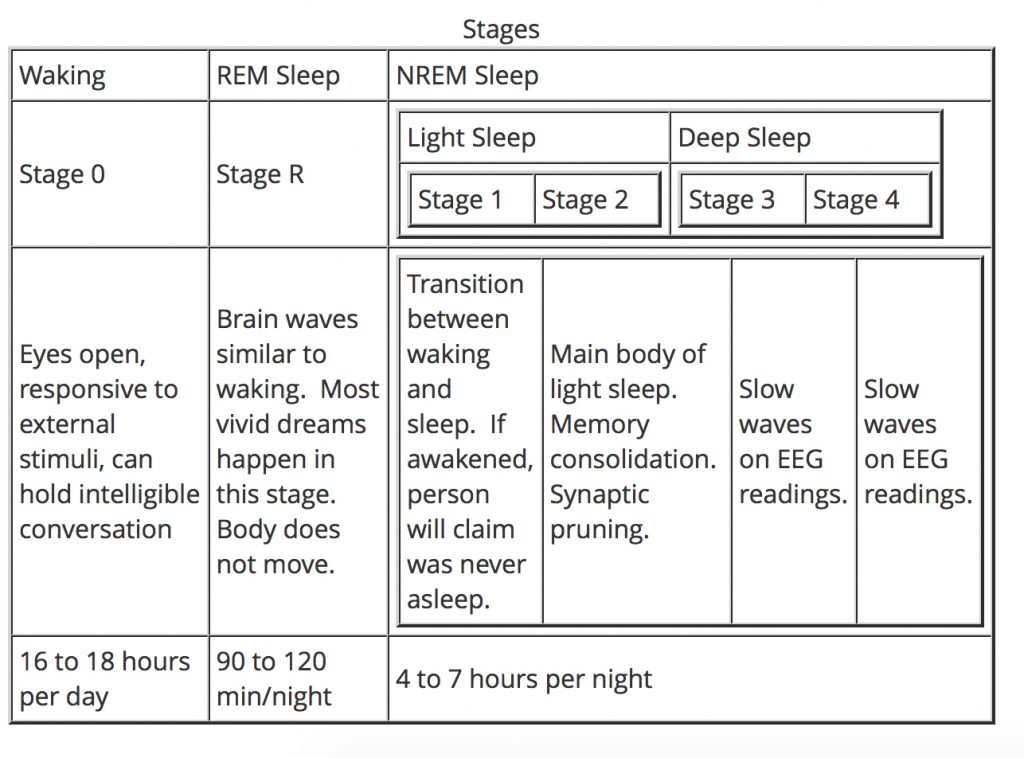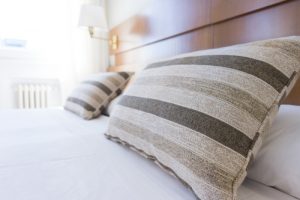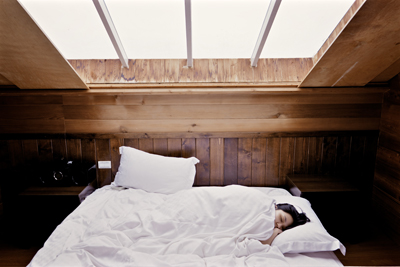In the world of exercise and fitness, we constantly talk about nutrition. We are in the stages of making resolutions for 2017. Here is one I implore every person to mindfully add to their 2017 commitments – getting restorative sleep. We are going to talk about quality sleep, because the truth is quantity can vary greatly. Just because we are sleeping, does not mean it is a healthy, restorative sleep.
 45% of Americans and Canadians report sleep problems. If we are not practicing good sleep hygiene, we are jeopardizing our health.
45% of Americans and Canadians report sleep problems. If we are not practicing good sleep hygiene, we are jeopardizing our health.
There are 80 types of sleep disorders, generally divided up into 3 categories:
- Disturbed Sleep. (e.g., Obstructive Sleep Apnea)
- Insomnia
- Excessive Sleep. (e.g., Narcolepsy)
And most important of all: Poor sleep can be a symptom of an underlying illness.
Sleep Deprivation and Chronic Illness
Why is healthy sleep a necessity to health and human performance?
Sleep deprivation leads to higher risk of chronic health problems including:
- high blood pressure
- heart disease
- stroke
- Alzheimer’s
- obesity
- diabesity
- cognitive dysfunction
- accidental death
- memory issues
- immune suppression
- depression
- moodiness
- metabolic syndrome
- hormonal dysfunction
- greater vulnerability to colds and flu
- premature aging
- alcohol use
According to Harvard Medical School, for people with hypertension, one night without enough sleep can cause elevated blood pressure all through the next day.
According to a British study, those who had cut their sleep from seven to five hours or fewer a night doubled their risk of death, particularly from cardiovascular disease.
Sleep is regulated by two body systems: sleep/wake homeostasis and our biological circadian clock
Sleep/wake Homeostasis: Alerts us that a need for sleep is accumulating and that it is time to sleep. It also helps us maintain enough sleep throughout the night to make up for the hours of being awake. With every waking hour there is a strengthening of the homeostatic sleep drive. Researchers believe this is a product of the demands of brain activity during wakefulness.
Circadian biological clocks: Regulate the timing of periods of sleepiness and wakefulness throughout the day. The circadian rhythm dips and rises at different times of the day. For most, the strongest sleep drive occurs between 2:00-4:00am and in the afternoon between 1:00-3:00 pm, although there is variation depending on if a person is more of a ‘morning person’ or ‘evening person’. We experience sleepiness during these circadian dips, but with sufficient sleep, the degree of sleepiness will be less intense https://holisticdental.org/ambien-treat-insomnia/.
Tips for Sleep Hygiene
- Oversleeping may set the bodies clock to a different cycle.
- Warm Bath. A warm bath will soothe and relax. Showering will have the opposite effect so try to avoid
- Exercise. Exercising, particularly aerobic, during the day will sufficiently tire one out and sleep will come faster at night. Intense training sessions during the late evening will have the opposite effect.
- Avoid Alcohol, Caffeine & Tyrosine-Rich Foods At Night. Caffeine causes hyperactivity and wakefulness. Tyrosine-rich foods are brain stimulating and may keep one awake. Alcohol significantly disrupts sleep by interfering with the stages of sleep.
- Foods rich in magnesium and potassium, tryptophan (such as a banana) are excellent for mellowing out, producing serotonin and melatonin for a good night sleep. Eggs, sweet potatoes, dairy (that glass of warm milk grandma told us to drink), poultry are all other good sources of tryptophan. Cottage Cheese is an excellent choice before bed
- Avoid Sleeping Pills. These may work temporarily but in the long term will cause disturbed sleep patterns.
- Temperature & Humidity. Keep the bedroom reasonably cool (about 60 degrees). Humidity may cause disrupted sleep. A fan running or soft background music may help to relax and encourage sleep.
- Relax: In the evening, avoid stressful calls, watching the news if it gets you riled, any conflict, dealing with work pressures.
- Please, no watching television before bed, increasing alertness. The brain may also learn that bedtime is for television watching and not to sleep. The colors in our HD televisions and cell phones interfere with circadian rhythms. On the iPhone – if you must look at it – turn it to NightShift.
- Although many shy away from bed time eating thinking it is unhealthy, sure we want to be very careful about the foods we choose. Stay away from sugar. We don’t need insulin spikes during sleep to interfere with important hormonal interaction during sleep. However, we have many studies that prove to us going to bed hungry will strongly interfere with our sleep cycle, and our body can actually break down muscle mass – NOOOOOOOOOOOO!
 Consider Power Naps: Nighttime sleep and dreaming promote new learning, memory consolidation, and greater creativity. Robert Stickgold, Director of the Center for Sleep and Cognition at Harvard Medical School, has shown in recently that daytime naps (aka power naps) may do as much good for memory processing as a full night’s sleep, even better than coffee as a workday pick me up. Caffeine does boost cognitive power for up to a half hour, “but sleep is actually taking the recent information that you’ve learned and filing it away for you so you can more effectively take in new information.”
Consider Power Naps: Nighttime sleep and dreaming promote new learning, memory consolidation, and greater creativity. Robert Stickgold, Director of the Center for Sleep and Cognition at Harvard Medical School, has shown in recently that daytime naps (aka power naps) may do as much good for memory processing as a full night’s sleep, even better than coffee as a workday pick me up. Caffeine does boost cognitive power for up to a half hour, “but sleep is actually taking the recent information that you’ve learned and filing it away for you so you can more effectively take in new information.”
Maybe its time to talk to your family doctor about testing for sleep disorders? Here are some signs to watch out for:
- Waking up to go to the bathroom numerous times. This is a bit of a chicken or the egg issue. It is possible that we are going to the bathroom because we are awake, not that we woke up to go to the bathroom.
- Moodiness during the day, sleepiness, forgetful, lowered sex drive, less productive, having to re-read sentences multiple times.
- Waking up with dry mouth, sore throat or headaches.
- Looking for causes for high blood pressure? Check your sleeping!
- Weight gain. Studies have shown those who have less than 6 hours healthy sleep in a night have a 30% increased risk of obesity. Most notable of the explanations – the body produces more Ghrelin (stimulates hunger) and less leptin (provides satiety) with less restorative sleep.
All of the good, clean nutrition and physical activity, are mute without quality sleep.
Here is to meaningful, mindful resolutions for 2017, dedicated to our health, and to the health of our loved ones!
Shira Litwack is the Director of International Relations and Master Trainer at, Cancer Exercise Training Institute and creator of Best in Health Radio.

